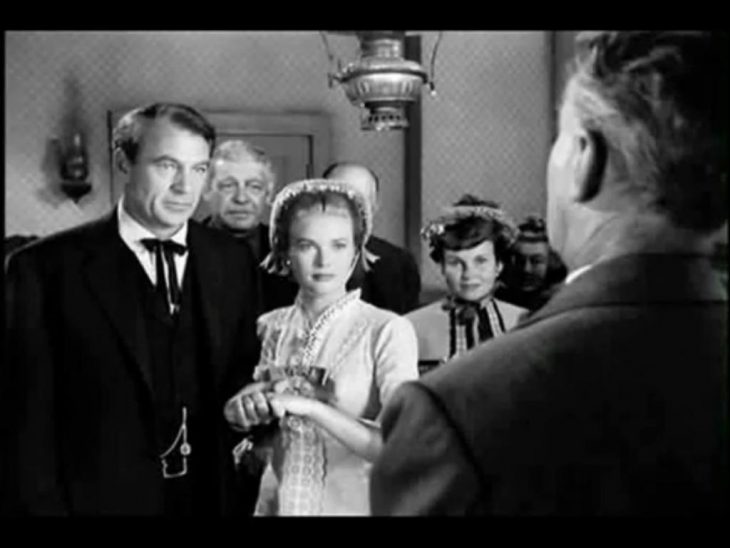
Word of the Day: Taciturn
Paul Schleifer
According to the OED, taciturn means “Characterized by silence or disinclination to conversation; reserved in speech; saying little; uncommunicative.” The first recorded use is from the Tobias Smollett novel Humphrey Clinker in 1771. Taciturn is a back formation from taciturnity, which first appears in English, according to the OED, around 1450 in a translation of Thomas à Kempis’s De Imitatione Christi (The Imitation of Christ), one of the most popular devotional books in the history of Christianity. Taciturnity came into the language “from Middle French taciturnité, from Latin taciturnitatem (nominative taciturnitas) ‘a being or keeping silent,’ from taciturnus ‘disposed to be silent,’ from tacitus ‘silent.’” Both of these words are also related to tacit “Unspoken, unvoiced; silent, emitting no sound; noiseless, wordless.”
May was the month of Gary Cooper’s birth and death. Cooper was born on May 7, 1901, the son of a Montana State Supreme Court justice. He grew up on a ranch in Montana, but his schooling happened across the pond at private boarding schools in England. He attended Iowa College, but he dropped out, eventually moving to Hollywood.
He got his first Hollywood job as an extra in a Western, and then finally starred in a silent film called The Winning of Barbara Worth in 1926. He continued with smaller parts, working within the studio system, until his first big talkie, The Virginian, in 1929. That made him an A-lister.
The films he made in the 1930s included The Plainsman, The Westerner, North West Mounted Police, and Mister Deeds Goes to Town, for which he was nominated for a Best Actor Academy Award. Then in 1941 he made Sergeant York, a biopic about the most decorated American soldier from World War One. And for his performance as Alvin York, Cooper won his first Best Actor award.
Cooper was nominated for three more Academy Awards in the last 19 years of his career: for The Pride of the Yankees (1942), For Whom the Bell Tolls (1943), and High Noon (1952). He won the award for his role in High Noon.
If you have never seen High Noon with Gary Cooper and Grace Kelly, you owe it to yourself to see it. Yes, it’s black and white. Yes, there are no special effects. But it’s a good story and a good film. A remake of it was done in 2000, starring Tom Skerritt. Now, I really like Tom Skerritt, but his presentation of Will Kane is downright chatty compared to the version of Gary Cooper. In fact, you can see the difference in the two by watching and comparing just the final scene, when Kane takes his star off his chest and leaves town.
In fact, Cooper’s portrayal of Will Kane is the epitome of taciturn, a real example of less is more.
Cooper died 6 days after his 60th birthday, on May 13, 1961, of prostate cancer.
The image is of the wedding of Will Kane and Amy Fowler (Gary Cooper and Grace Kelly) in 1952’s High Noon.